
교토 고쇼
Anne Lauenroth교토의 왕궁은 1868년 메이지 유신 때까지 17, 18세기 에도 시대 동안 황제들의 거주지로 사용되었다. 건물 안으로 들어가는 것은 불가능하지만, 궁궐 내에서는 가이드 투어를 할 수 있다. 관광은 한 시간 정도 걸리고 무료지만, 미리 황실청에 예약을 해야 한다.

The Kyoto Imperial Palace is the former ruling palace of the Emperor of Japan. Since the Meiji Restoration in 1869, the Emperors have resided at the Tokyo Imperial Palace, while the preservation of the Kyoto Imperial Palace was ordered in 1877. [Wikipedia]
A reservation is required to visit the Kyoto Imperial Palace.

교토의 왕궁은 1868년 메이지 유신 때까지 17, 18세기 에도 시대 동안 황제들의 거주지로 사용되었다. 건물 안으로 들어가는 것은 불가능하지만, 궁궐 내에서는 가이드 투어를 할 수 있다. 관광은 한 시간 정도 걸리고 무료지만, 미리 황실청에 예약을 해야 한다.




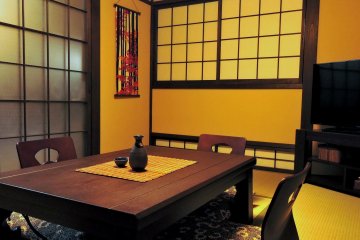
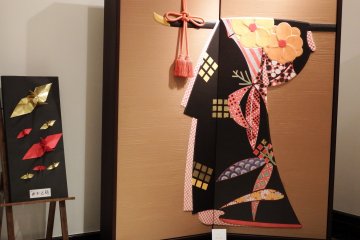
시조 카라스마의 호텔 닛코 프린세스 교토는 싱글 룸 (24㎡)부터 트윈 룸 (48㎡)까지 갖춘 넓적한 객실을 갖추고 있다. 호텔 스태프들은 트레이닝을 잘 받고 최고의 예절과 접대를 한다.
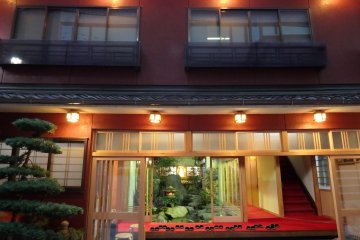

境町店」-67014.jpg)
"무라사키노 와쿠덴 사카이마치텐"이다. 일명 "무로마치 와쿠덴"이라고 하는 이 가게에는, 와쿠덴의 과자나 도시락등을 가지고 갈 수 있는 숍이 있지만, 그 2층, "다과석"이라고 하는 일본 카페에 준비되어 있다. 맛차와 와쿠덴의 일본식 과자. 조용하고 사치스러운 한때를 즐길 수 있다.
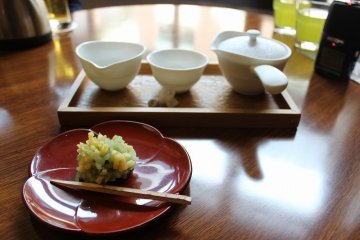
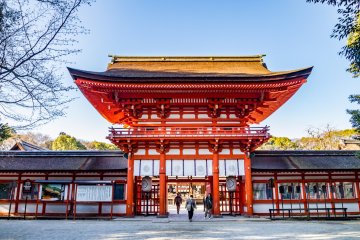
The Kamo Shrines, Shimogamo Shrine and Kamigamo Shrine are both recognized as UNESCO World Heritage Sites. They are two of the most important and oldest shrines in Kyoto. They are located in the north of the city and are intentionally placed to ward off evil and Protect the city In fact, the two Kamo shrines are even older than the city, which became the national capital in 794. Shimogamo Shrine is located at the confluence of the Takano and Kamo Rivers and is surrounded by a forest that contains trees up to 600 years old. The Kamigamo Shrine is about three and a half kilometers upstream and is known for two sand cones on its site, which have a cleaning function for the sanctuary and have been ritually made since ancient times. Together the shrines host one of Kyoto's three biggest festivals, the Aoi Matsuri, which takes place on May 15th.

Nijo Castle is one of the most accessible UNESCO spots in Kyoto, being just a short walk from Nijojo-mae Station. The former residence of the Tokugawa shoguns, the sprawling castle grounds are surrounded by a wide moat and massive stone walls. Spanning over 275,000 square metres, Nijo Castle is one of the biggest historic sites in all of Kyoto. Established in 1626, Nijo Castle was built by a combined effort from all the feudal lords in Western Japan at the time. Since then, multiple buildings have been damaged by fires or storms, and extra effort is taken by the city to preserve and restore this cultural site. Nijo Castle is designated as a Historic Monument of Ancient Kyoto, making it one of the prefecture's most significant sites. Within the castle grounds is Ninomaru Palace, a 3,300-square meter complex made almost completely out of Hinoki cypress wood. The palace interior is adorned with gold leaf-plated decor and exquisite wood carvings, making it a fitting place to entertain powerful political visitors during the shogunate's ruling period.
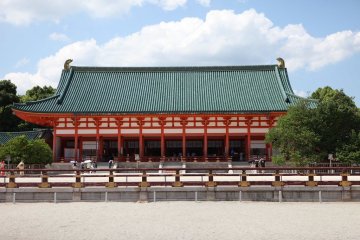
The Heian Shrine is a Shinto shrine located in Sakyō-ku, Kyoto, Japan. The Shrine is ranked as a Beppyō Jinja by the Association of Shinto Shrines. It is listed as an important cultural property of Japan. [Wikipedia]